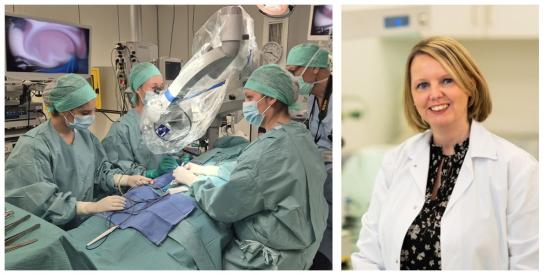
A historic medical breakthrough has been achieved as surgeons successfully performed the first-ever transplant of cryopreserved immature testicular tissue that had been preserved for 16 years. The procedure was conducted on a patient who had undergone chemotherapy during childhood, with the aim of restoring his fertility. The pioneering transplant represents the culmination of 25 years of dedicated research at the Biology of the Testis (BITE) research group at Vrije Universiteit Brussel, under the leadership of Professor Ellen Goossens. The successful operation marks a significant advancement in fertility preservation for cancer survivors.
“Ever since I took my first steps as a researcher, I looked forward to the day when theory would be put into practice. It was a special day, both for the patient and for the researchers and clinicians involved. I am extremely proud and thankful to everyone who made this possible: all researchers that have worked at BITE for developing the freezing and transplantation procedures, and the clinicians at UZ Brussel’s Brussels IVF, especially Prof. dr. Herman Tournaye, Dr. Veerle Vloeberghs, Dr. Ileana Mateizel and Dr. Ingrid Segers. We made history”, Professor Goossens said.
National Media Coverage
The achievement was acknowledged by several media outlets across the country namely:
- Universiteit Van Vlaanderen - https://www.universiteitvanvlaanderen.be/podcast/hoe-kunnen-jongens-met-kanker-later-nog-kinderen-krijgen
- VRT - https://www.vrt.be/vrtnws/nl/2025/01/08/uz-brussel-teelbalweefsel-vruchtbaarheid-transplantatie/
- HLN - https://www.hln.be/weer-en-wetenschap/medische-primeur-transplantatie-teelbalweefsel-om-mannen-weer-vruchtbaar-te-maken-na-kankerbehandeling-als-kind~a1cfb50e/
Next Steps
The medical team will now monitor the patient's progress over the next year to evaluate sperm cell production. This successful procedure opens new possibilities for fertility preservation in young cancer patients.
This research was supported by the Research Foundation Flanders - FWO and the VUB Strategic Research Programme.
